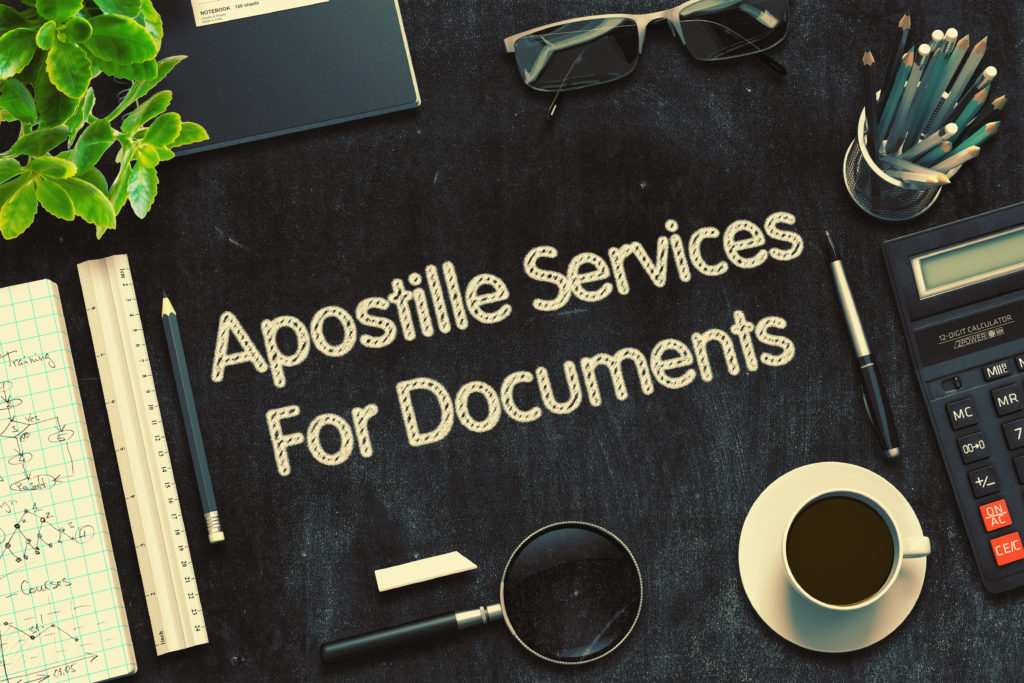Legal documents are famously drenched in confusing jargon. It is not uncommon for some of the lingo to be puzzlingly similar. Guarantee, guaranty, guarantor come to mind. What is the difference between these words? How to do they affect the legality of my document? Consider this article your comprehensive guide to all the iterations of the legal term guaranty.
What is Guaranty?
Legally speaking, a guaranty is a formal agreement between two parties used when money or services has exchanged hands. A guaranty is a contract outlining a promise from one party to either pay a debt or perform a service or duty as promised. Specifically, a guaranty is a promise to fulfill the duties of another in the event that fail to do so.
A guaranty is often drafted after several attempts have been made to receive outstanding payments or services.
When Would I Use a Guaranty?
To reiterate, a guaranty is often a promise to execute the unfulfilled duties of another party. The most common example of this is when someone cosigns for something. For example, if a student is applying for a loan for college tuition. They will likely need a parent or guardian to cosign it for them. Additionally, when someone buys a car, rents an apartment, or opens a credit card, they may be required to have someone cosign for them.
Someone may need a co-signer in the following instances:
- They have a poor credit score (or they don’t have any credit at all)
- Not meeting a minimum income requirement
- Having a poor debt-to-income ratio (i.e. they are making less money than they currently owe already)
- They are self-employed and/or have an irregular stream of income
- Being between jobs or unemployed
Whoever cosigns a transaction will sign a guaranty that they will take over the financial responsibility promised in the event that the primary can no longer do so.
Things to Consider before Cosigning
It is important to understand the financial risks involved with cosigning on a loan. Below are some things to consider before you cosign.
Why they Need a Co-signer
When someone asks you to cosign a loan, it is because they do not qualify by themselves. Sometimes, this could just be because your child does not have a credit history yet. Therefore, you can help them start one and set them up for future financial success. On the other hand, if an older friend or relative seeks you out as a co-signer, be sure to do your due diligence. Do they make enough money to cover the payments themselves? Are they trustworthy enough to make the payments? Do they put more money on a credit card than towards paying off debts? The bank or lending institution is requiring a co-signer because they do not trust the client has the ability to pay on their own.
No Personal Benefit
Whatever you are cosigning on is often of no benefit to you personally. The primary party will live in the apartment, buy groceries with the credit card, or drive the vehicle they are buying. The primary benefit to you would be the satisfaction that you are helping someone you love. Which is a great reason! Just keep in mind what is at stake for you, financially speaking.
Co-signing Affects Your Credit Score
In the eyes of a bank, a co-signer is just as responsible for payments on a loan as the primary account holder. Meaning, if the principal is late on a payment, it is reported on their credit score and yours. Worse still, it may take several months before you are aware of the late or missed payments. Therefore adding up negative credit information in your name, without you even knowing it. Be sure you keep in contact with the principal on the loan to check in on their payments.
Conversely, cosigning a loan can actually improve your credit score. If the principal makes all of their payments in full and on time, this will positively affect both of your credit scores. Depending on the length of the loan period, this is still a risky investment – especially if you already have great credit.
You May Go Into Debt
We mentioned the debt-to-income ratio earlier in this article. Specifically, in reference to someone having trouble getting a loan alone if they have a poor debt-to-income ratio. Well, when you cosign a loan you are taking responsibility for the debt of the principal signer. For example, let’s say your cousin owes $27,000 on a car purchase that you cosigned. Now, in the eyes of credit standings, it now looks like you have a debt of $27,000. If your income is substantially more than that, your debt-to-income radio will likely be fine. However, if the ratio is too high, you may have trouble taking out your own loans.
You May Have to Take Over the Payments
The very foundation of a co-signer is that they take financial responsibility for the loan if the principal defaults. Translation: if they cannot pay, you have to. As previously mentioned, you may not be aware of late or missed payments until months later. When that happens, debt collectors may target you and even sue you for the outstanding payments. Worse yet, you can have a judgment entered against you. A judgment is bad credit juju, and one of the worst things for your financial health.
Furthermore, let’s say the principal files for bankruptcy. They will get the shared debt discharged from their financial ledger. You, however, will be solely in charge of paying the debt and maybe even forced into bankruptcy of your own.
Relationship Strain
It should go without saying that money is one of the leading causes of relationship trouble. Cosigning on a loan is a big commitment, that often lasts for years to come. In the event that the principal defaults on the payments and ruins your credit, how would you feel? Would your relationship be adversely affected? What if you grow apart before the terms of the loan are met? Be sure to consider the potential strain this type of arrangement could put on your relationship.
Backing Out is Not Easy
Once you have decided to cosign a loan, it is quite difficult to make out should you change your mind. First of all, the principal would have to close the account and re-apply as a single entity. However, their financial situation would need to drastically improve for them to qualify on their own.
Backing out is not impossible, it is just complicated. Truly understand that when you cosign a loan, you are most likely in it until the loan is paid back in full.
Guaranty vs. Guarantee
In the eyes of the law, guaranty and guarantee can sometimes mean the same thing. Both are detailing a promise made to another party. Essentially, the primary difference lies within the intended grammatical use. For example, guaranty, as detailed in the section above, is only used as a noun. Guarantee, on the other hand, can be used as either a verb or a noun.
Guarantee Definition
Let’s dive deeper into the grammatical variations of guarantee.
When used as a verb, guarantee can mean:
- Affirming that a promise made will, in fact, be kept. The client guarantees payment by October 1st of this year.
- Agreeing to absorb unpaid debts or obligations on someone else’s behalf. My mother guaranteed my apartment lease. (i.e. The mother would cover the rent if their child could not make defaulted on payments)
- Stating something with extreme confidence. I guarantee you will love this restaurant.
Conversely, guarantee can also be used as a noun. Defined as:
- A promise that a service will be provided, debt will be paid, or a condition will be met. I submitted a written guarantee to my bank ensuring my debts will be paid in a timely manner.
Guarantor Definition
A guarantor is a person who takes responsibility for someone else’s debt in the event that they cannot pay. For example, a co-signer on a mortgage would be considered a guarantor. Not only does a guarantor take financial responsibility of a loan, but they use their own personal assets as collateral. However, the guarantor has no legal claim to the asset acquired by the principal within the loan terms.
A guarantor can also be responsible for verifying someone’s identity. For example, when someone is applying for a passport.
Who Can be A Guarantor?
First of all, a guarantor must be a legal resident of the country where the loan is taking place. Furthermore, one must be 18 years or older with a history of good credit to qualify. When applying for a loan, a guarantor must prove they have sufficient income to cover the payments if the principal defaults.
Interestingly enough, a principal applying for a loan can sometimes act as their own guarantor. When this happens, the principal will put up an asset of their own as collateral. For example, a principal may offer their car as collateral in a loan agreement. This means that if they cannot keep up with their payments, the lender can seize the car and sell it to cover the debt owed.
Guarantor vs. Co-signer
To clarify, a guarantor is not the same thing as a co-signer. When someone co-signs for something, they will legally own said asset. On the other hand, a guarantor has no legal rights to the asset acquired. A guarantor simply promises to take over payments in the event the principal fails to pay.
It is usually at the discretion of the lender to choose whether to request a guarantor or a co-signer. A co-signer is preferred if the borrower’s income falls short of the requirement set by the lender. In this case, a co-signers income with likely make the borrower meet, or exceed, the requirement. A guarantor, on the other hand, may have satisfactory income but a mediocre credit score.
Should I Use a Notary?
As with any important document, you should use a notary. A notary is an official representative of the secretary of state. The primary role of a notary is to prevent fraudulent signatures on documents of great importance. This process is referred to as a notarization.
In terms of guarantees, loans, and any other document regarding financial commitments, it is always a good idea to get the relevant documents notarized. There have been a number of cases where a principal has forged someone’s signature as a guarantor or co-signer. If and when they default on the loan, the person whose signature they forged could face some rather unexpected and nasty debts. Furthermore, that person’s credit score will likely be ruined. Proper notarizations help protect your delicate financial health, as well as your assets.
What Happens During a Notarization?
Notary laws and regulations vary from state to state. However, notarizations go something like this…
- Identification – The cornerstone of a successful notarization is the proper identification of all parties signing the document. This is done with the aid of valid a valid form of photo identification, such as a drivers license or passport
- Consent – A thorough identification involves more than checking i.ds. In fact, a notary will go one step further and confirm that the signing party is volunteering to sign at their own free will. Furthermore, the notary will ask the signer if they understand the document in its entirety
- Oath or Affirmation – Certain types of documents call for a jurat notarization. The distinctive element of a jurat is the requirement for the signer to verbally accept an oath or affirmation. An oath, as you are probably familiar, is a promise made before God. In the case a jurat, the signer is promising that the contents are true and complete. An affirmation carries the same weight but promises truth on the signer’s honor instead of to a higher power
- Sign and Stamp – Finally, all required parties and the notary themselves will sign the document. Then, the notary will use their unique notary seal (stamp) to complete the notarization
Notary vs. Attorney
Let’s take a step back to number two in the last section, “consent”. Here, we detail that a notary ensures each signing party understands the document they are signing. It is vital to note that it is not the role of a notary to answer questions if the signer doesn’t understand something within the document. In fact, a notary cannot legally act as an attorney regarding a document they are notarizing.
Therefore, if you have any lingering questions about the document, consult a lawyer before getting the document notarized. This is especially important regarding documents involving finances.
What to Bring to a Notary Appointment
Congratulations! You have consulted your lawyer and you have the final draft of your document. Now what? Here is a list of everything you need to bring with you to your appointment.
Proper Photo Identification
As previously mentioned, accurate confirmation identity is vital to a proper notarization. Essential elements of an acceptable form of ID include:
- A recent, distinguishable photo
- The issuing authority (i.e. Texas if you have a Texas drivers license)
- An accurate physical description (eye/hair color, height, etc.)
- Your signature
Commonly accepted forms of identification include:
- A valid passport
- State-issued driver’s license or identification card
- Green card (resident alien identification card)
- Military identification card
Conversely, unacceptable forms of identification include:
- Social security cards
- birth certificates (long form or short form)
- School or university ID cards
- Credit or debit cards (even ones with photos on them)
Please note that acceptable forms of identification can vary by state.
Signer(s) of the Document
More often than not, documents will require the signature of more than one person. If that is the case, you can save time and money by bringing all involved parties to the same notary appointment.
What if the necessary parties all live in different states? Or perhaps your schedules simply cannot sync up to attend the same appointment. Fortunately, you can have multiple notarizations on the same document. In fact, different notaries can even perform each signature’s notarization. However, this adds considerable time and expense to the notarization process. Furthermore, it is vital that the same original copy makes the rounds for the necessary signatures. Should any amendments be made along the way, a new notarization would be required to ensure every signing party saw and accepted the changes.
The Document
Just a friendly reminder to bring the document itself! This may seem obvious, but we have all locked our selves out of our houses when forgetting something as obvious as our keys.
You can save time at the appointment by filling out any necessary fields prior to your notary appointment. However, save the fun of signing until you are in the presence of the notary. Signing in front of the notary is not always legally mandatory. However, it is a good idea to do it anyway, just in case.
Notary Fee
While some places offer complimentary notary services, you will more than likely have to pay a fee. Notary fees vary based on a variety of factors, such as:
- Type of document
- State of signing
- Number of signatures
- Additional fee options (such as travel for mobile notaries)
Typically, a notary will charge on a per-signature basis. Most states have a legal cap that a notary can charge. For example, in California, the max allowable notary charge is $10 per signature.
Where to Locate a Notary
Now that you know what to expect during a notarization, where can you get one done? Fortunately, you should have to look far to find a notary near you. There are approximately four million notaries in the United States alone. Naturally, rates and availability will vary depending on where you live. When beginning your local search, here are some good places to look:
- Banks or Credit Unions – Almost everyone out there has a bank account. If you are one of those people, your bank may offer complimentary notary services for account holders
- The Public Library – That’s right, your local library holds more than stories. Many libraries have a low-cost notary available for public use
- Hotels – A convenient option for frequent travelers, many hotels offer a notary service. Conversely, if they do not, the concierge can likely point you in the direction of one
- Police Stations – A handful of police departments offer notary services
- AAA Branches – AAA does more than fix your flat tires! Some local offices provide notary services
- Insurance Agencies – Check with your insurance provider about their notary services
- Local Government Offices – Check with your local town or city hall or county clerk’s offices about their notary services
- Universities – Many campuses provide notary services to students and faculty
- Mobile notaries – The ultimate in luxury notary services – have the notary come to YOU! Why race around town when you can have notary services brought right to your doorstep. This option is more commonly available in larger metropolitan areas
Bear in mind that notaries are public servants. Therefore, even if you are not a client/customer/account-holder at any of the above establishments, they can not deny you of notary services if they offer them.
Guaranty: In Summary
With any matters dealing with finances, extra care and consideration should always be given. If you are asked to guaranty or co-sign a loan, understand the risks involved. Consider the proposition from all angles, and make sure you have a solid, trusting relationship with the principal of the loan. A guaranty is a legally binding document in which you are held accountable for the actions of another. If you decide to guaranty a loan on someone else’s behalf, you are putting your finances and assets on the line. To further protect yourself and your financial well-being, get all financial documents notarized.
Sources
https://definitions.uslegal.com/g/guaranty/
https://www.credit.com/loans/loan-articles/cosigner-what-you-need-to-know/
https://www.investopedia.com/terms/g/guarantor.asp
https://www.thebalanceeveryday.com/where-to-notarize-affidavit-896914
https://www.thebalance.com/why-you-shouldn-t-co-sign-for-someone-else-960995
https://www.coveringcredit.com/business_credit_articles/Laws_and_Regulations/art845.shtml




